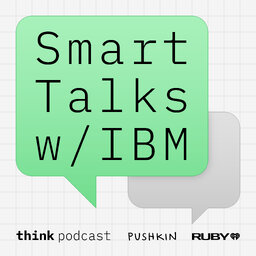What makes a good gaming PC?
If you own a personal computer dedicated to gaming, you know the habit can become surprisingly expensive. In this podcast, Jonathan and Chris explore the costs involved with playing the latest and greatest PC games -- and how to build your own machine.
Learn more about your ad-choices at https://www.iheartpodcastnetwork.com
In 1 playlist(s)
TechStuff
TechStuff is getting a system update. Everything you love about TechStuff now twice the bandwidth wi…Social links
Follow podcast
Recent clips

TechSupport: What Happens When AI Undresses You?
25:58

The Story: How Science Fiction Changes the Real World
30:44

NASA and AI: Decoding Our Universe
33:53
 TechStuff
TechStuff